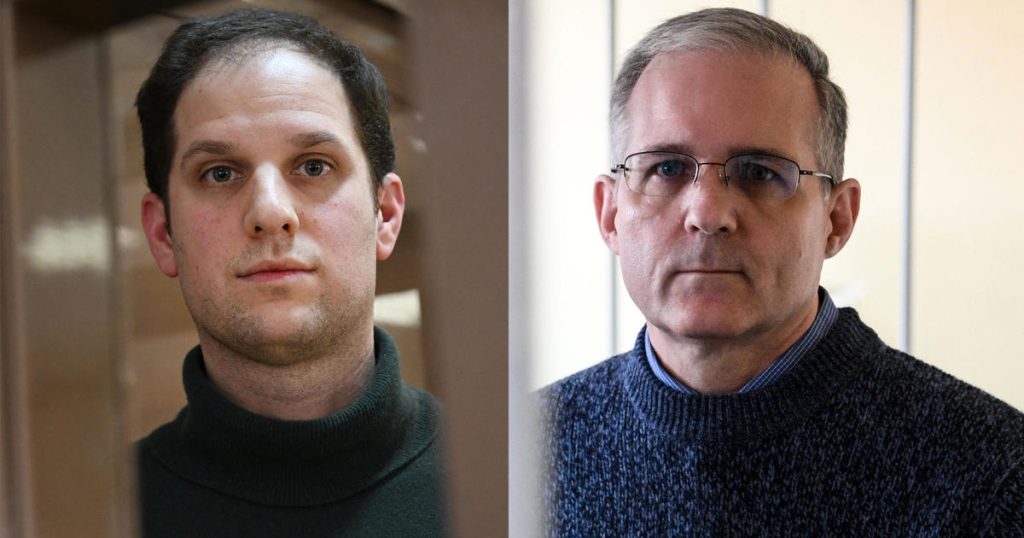The Biden administration successfully negotiated the release of three American citizens from Russia in a 24-person prisoner swap involving six countries. The release of Wall Street Journal reporter Evan Gershkovich, Marine veteran Paul Whelan, and Russian-American radio journalist Alsu Kurmasheva was a significant win for the administration. The deal is one of the largest prisoner swaps since the end of the Cold War, involving a mix of political dissidents and individuals with ties to Russian intelligence. The negotiations were complex and involved multiple U.S. government agencies, culminating in the exchange on a tarmac in Ankara, Turkey.
Gershkovich, Whelan, and Kurmasheva had all faced wrongful detention and imprisonment in Russia. Gershkovich was taken into custody on espionage charges, Whelan was imprisoned after attending a wedding, and Kurmasheva was detained for disseminating false information about Russia’s military. The U.S. government condemned their arrests and worked to secure their release. The negotiated deal also involved the release of Russian nationals held in the U.S. and other Western countries. The German court-convicted murderer Vadim Krasikov was a key figure in the exchange.
The negotiations involved a series of complex discussions and proposals between the U.S., Russia, and Germany. Secretary of State Antony Blinken and National Security Advisor Jake Sullivan played key roles in the negotiations. The deal expanded to include various political prisoners and figures of interest to both Russia and the Western nations involved. The inclusion of Alexey Navalny in the negotiations added to the complexity and sensitivity of the talks. The eventual agreement was reached after months of discussions and diplomatic efforts.
The White House learned of Gershkovich’s detention in 2023, leading to further negotiations with Russia for his release. Various high-level meetings and communications were held between U.S. and Russian officials to facilitate the prisoner swap. The tragic death of Alexey Navalny in a Russian prison nearly derailed the negotiations, but the talks continued and a new proposal was presented to Germany. President Biden and German Chancellor Olaf Scholz played crucial roles in finalizing the deal which resulted in the release of the American detainees from Russia. The successful outcome was a significant achievement for the Biden administration.
The prisoner swap was a carefully orchestrated and coordinated effort that spanned several months and involved multiple parties. The involvement of various intelligence agencies, diplomatic channels, and high-level negotiations were critical to securing the release of American citizens from Russian custody. The complex nature of the negotiations, including the inclusion of political prisoners and individuals with ties to Russian intelligence, highlighted the challenges faced by the Biden administration in navigating international diplomacy. The prisoner swap was a significant and hard-fought win for the administration, demonstrating its commitment to securing the release of wrongfully detained individuals from around the world.
The release of Gershkovich, Whelan, and Kurmasheva marked a successful end to their ordeals and brought relief to their families and supporters. The U.S. government’s efforts to secure their release underscored the importance of diplomatic negotiations and international cooperation in resolving complex geopolitical disputes. The prisoner swap was a testament to the Biden administration’s commitment to upholding human rights and advocating for the release of individuals wrongfully detained or imprisoned. The exchange of prisoners between the U.S., Russia, and other Western countries represented a rare and significant moment in diplomatic history, showcasing the power of diplomacy and negotiation in resolving international conflicts.


